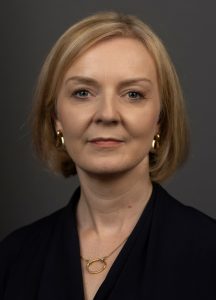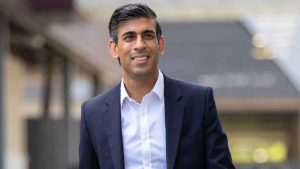The head of the government of the United Kingdom is the position of the Prime Minister. The primary task of the prime minister is to instruct the monarch on the functioning of the royal sanction and also get to select their ministers. “As modern prime ministers hold office by virtue of their ability to command the confidence of the House of Commons, they sit as members of Parliament. The office of prime minister is not established by any statute or constitutional document, but exists only by long-established convention, whereby the reigning monarch appoints as prime minister the person most likely to command the confidence of the House of Commons; this individual is typically the leader of the political party or coalition of parties that holds the largest number of seats in that chamber.”[1]
The prime minister is ex officio also First Lord of the Treasury, Minister for the Civil Service and the minister responsible for national security.[2] Naturally, various privileges, are accorded such as mere by virtue of their position as First Lord of the Treasury. In 2019, the office of Minister for the Union was established; Boris Johnson became the first prime minister to hold this title.[3] Rishi Sunak is the incumbent Prime Minister, succeeding Liz Truss on 25 October 2022.[4]
Functions of the Prime Minister:
- The most senior figures are called cabinet ministers. They lead government departments – such as the Treasury and Home Office. The prime minister can, at any time, hire and fire ministers. They can also abolish government departments or create new ones.
- Alongside the chancellor, the prime minister is in charge of tax-and-spending policy.
- The prime minister and their ministers can also bring in new laws – as long as they are backed by Parliament.
- The prime minister has overall control of the civil service – the people and departments that carry out government’s decisions.
- They also make decisions about the UK’s defence and security.
- A number of special responsibilities also rest on the prime minister’s shoulders, such as deciding whether to shoot down a hijacked or unidentified aircraft. They can also authorise the use of the UK’s nuclear weapons.
- Honours, such as knighthoods and damehoods, are put forward by the PM. They can also recommend peerages – where someone becomes a member of the House of Lords.
- The prime minister usually has a weekly meeting with the King to brief him on government matters. These meetings are private and there is no official record of what is said.
- Despite their powers, prime ministers can’t just take any decision they like. They need to retain the confidence of most MPs. That’s because laws can only be passed if a majority of MPs vote them through.
- If a government repeatedly loses votes, MPs can choose to call a “motion of no confidence”. If a prime minister loses such a vote, they face the prospect of a general election.” [5]

Mary Elizabeth Truss was the former elected British politician who served as Prime Minister of the United Kingdom. “She resigned amid a financial and political crisis after 50 days in office, making her the shortest-serving prime minister in the history of the United Kingdom. She previously served in various Cabinet positions under prime ministers David Cameron, Theresa May and Boris Johnson, lastly as Foreign Secretary from 2021 to 2022. She has been Member of Parliament (MP) for Southwest Norfolk since 2010.
Truss defeated Rishi Sunak in the Conservative Party leadership election to succeed Johnson, who resigned amid a government crisis. Appointed prime minister by Elizabeth II two days before her death, Truss oversaw the Queen’s state funeral, the largest ever security operation in the UK. To tackle the ongoing cost of living crisis and energy supply crisis, her government announced the Energy Price Guarantee to limit energy prices for households, businesses and public-sector organizations. Truss’s government announced large-scale borrowing and tax cuts in a mini budget. The mini budget was widely criticized and largely reversed, having led to financial instability. Facing mounting criticism and loss of confidence in her leadership, Truss announced her resignation as Leader of the Conservative Party; Sunak was elected unopposed as her successor and replaced her as prime minister. Truss remains in the House of Commons as a backbencher.” [6]

Rishi Sunak is a British politician who is serving as the current Prime Minister of the United Kingdom since 25 October 2022. “Sunak was born in Southampton to parents of Indian descent who migrated to Britain from East Africa in the 1960s. He was educated at Winchester College, studied philosophy, politics and economics (PPE) at Lincoln College, Oxford, and earned an MBA from Stanford University as a Fulbright Scholar. While at Stanford, he met his future wife Akshata Murty, the daughter of Indian billionaire N. R. Narayana Murthy of Infosys. After graduating, Sunak worked for Goldman Sachs and later as a partner at the hedge fund firms The Children’s Investment Fund Management and Theleme Partners. Sunak stood in the Conservative party leadership election to replace Johnson and lost the members’ vote to Liz Truss. After Truss’s resignation amid a government crisis, Sunak was elected unopposed as Leader of the Conservative Party on 24 October 2022. He was appointed Prime Minister by King Charles III, the first to be appointed during his reign, a day later, becoming the first British Asian and Hindu to hold that position.”[7]
Key Developments:
- “British government bond prices rose sharply after Sunak cruised to victory in the race to succeed Truss, removing at least one source of uncertainty for bond investors.
- Ten-year British government bond yields fell to their lowest level since former finance minister Kwasi Kwarteng’s “mini budget” on Sept. 23.
- Bank of England Deputy Governor Dave Ramsden said credibility was returning to British economic policymaking, judging by a recovery in the government bond market.” [8]
- “Some say Sunak is the right person at the right time for the job. His background in finance – working in investment banking, hedge fund management and co-founding an investment firm, plus his experience at the Treasury as chief secretary and then chancellor can come in handy to help navigate the economic crisis, we find ourselves in. It also seems the markets have confidence in him given they reacted positively to the initial prospect of him becoming prime minister. Furthermore, he correctly predicted the shock to the markets and heightened interest rates following Truss’s economic plans. So, what might his premiership mean for our sector?” [9]
- “His choice of words for his first two speeches as prime minister could be deemed as encouraging, however, it is the actions that come alongside the words that matter most and so far his choice of Cabinet appointments has left many wondering if his claims to integrity, professionalism and compassion stand up to scrutiny. Sunak referenced the need for “stability and unity” and pledged to serve with “integrity and humility”, adding in “professionalism” and “accountability”. He promised to fix mistakes made and said he will place economic stability and confidence at the heart of this government’s agenda, which will mean difficult decisions to come. What these “difficult decisions” are is yet to be seen but one can assume it means tax increases and public service cuts. We will find out more at the Autumn Statement on 17 November 2022, which will be accompanied by an Office for Budget Responsibility (OBR) forecast.” [10]
The citizens of India have particularly been very encouraging and shown enthusiasm at Sunak’s appointment. From politicians to celebrities, everyone seems to have been very proud of Rishi to take on the office by fire and at such a young age. So far, Rishi’s position brigs about positive talk in the town. Only the time will tell how the new Prime Minister will fare his time at the office.
[1] Royal prerogative in the United Kingdom - Wikipedia [2] "The Cabinet Manual" (PDF) (1st ed.). Cabinet Office. [3] "Minister for the Union". GOV.UK. Retrieved 6 September 2022. [4] "Penny Mordaunt pulls out of Tory leadership race, paving way for Rishi Sunak to become next PM". Sky News. [5] What does the prime minister actually do? - BBC News [6] Liz Truss - Wikipedia [7] Rishi Sunak - Wikipedia [8] Rishi Sunak to be UK prime minister: What you need to know | Reuters [9] Rishi Sunak as PM: what does it mean for our sector? – ACEVO [10] Ibid.













